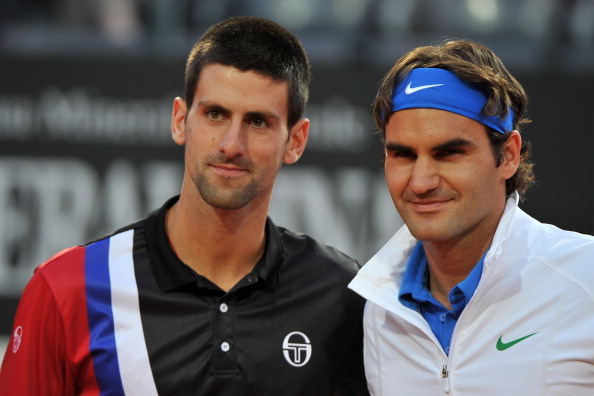
In this year’s US open, the two top men’s seeds were bounced out in the semifinals, thanks to the marvelous run of Japanese Kei Nishikori and Croatia’s Marin Cilic. Since Rafael Nadal didn’t participate due to a wrist injury and Andy Murray was stopped earlier, it was the first time in many years that the US open champion was someone other than the big four. With Davis Cup following soon and Serbia going to India for the World Group play-off, Djokovic was the most notable absentee from the Serbian team that arrived in Bangalore. Roger Federer, on the other hand, jumped the Davis Cup bandwagon and made himself available for Switzerland’s tie against Italy. The observers went agog with speculations about why Djokovic should miss the opportunity of being part of his national team against India and why Federer chose to play.
Many reasons are cited in the media for Djokovic’s absence. Some observers feel that the world No.1 was so disgusted with himself following his semifinal loss to Nishikori in the US Open that he decided to skip the Davis Cup. Some others think that the Serb is too fatigued to take a long journey so soon. But such reasons hold no water because Djokovic is a thorough professional and he cannot be bogged down one loss. The Serbian is also known to be a die-hard national and he has demonstrated his love for his homeland on several occasions. It should not be forgotten that Djokovic had led Serbia in 2010 to Davis Cup triumph and in the eyes of his countrymen he wouldn’t do anything that puts national honor at risk. The more plausible reasons for his absence may be; a) India is a relatively weaker team with their best singles player Somdev Devvarman ranked 144 in the world; b) the lower ranked Serbian tennis players are quite capable of winning against India; and c) Djokovic’s new wife Jelena is an advanced stage of pregnancy and the couple is expecting their first child at the end of 2014.
Federer’s decision to play for his country against Italy was prompted by the threat posed by some competent Italian stars like Fabio Fognini. Since the other Swiss, Stanislas Wawrinka abstained, Federer has to shoulder the responsibility of seeing through the country in at least two singles matches. Federer also has a family responsibility being a father of four, two twin boys, both infants and two twin toddler girls. But the pride of playing for one’s country was the primary reason for Federer choosing to play for Switzerland against Italy. If Djokovic’s case is compared to Federer’s, there is vast difference in the two scenarios. While Serbia is too strong for India, Switzerland is a little less certain against Italy. Therefore it was more important for Federer to answer Switzerland’s call than Djokovic doing likewise for Serbia. Also since the Davis Cup victory against Italy will move Switzerland closer to their first ever triumph in the coveted tournament, Federer would have liked to help such cause. Djokovic has already done it once for Serbia and Federer will not like to miss that chance to add the prestigious title in his already impressive resume. Some people may not be convinced with this narrative but since Federer is a traditionalist and he has a keen eye on the history of the game, he knows that Davis Cup matters. He also knows that many of his celebrated peers have led their nations to Davis Cup victory in the past.
For Djokovic, there is only one small problem. If in the unlikeliest event of India beating Serbia, the Europeans could be pushed out of the World Group to be relegated to Zonals next year. Such humiliation will put Djokovic under some heat at home and heavy pressure to bring his nation back into the elite World Group in 2015.
In summary, while Federer has his reasons to play the Davis Cup, Djokovic could afford to miss the Serbia-India ties for reasons outlined earlier. It will be a great moment for the Swiss to be leading his country to Davis Cup glory. A Serbian victory in Bangalore will ease things for Djokovic, who will, then look forward to the days of changing diapers of his new-born in less than four months’ time.